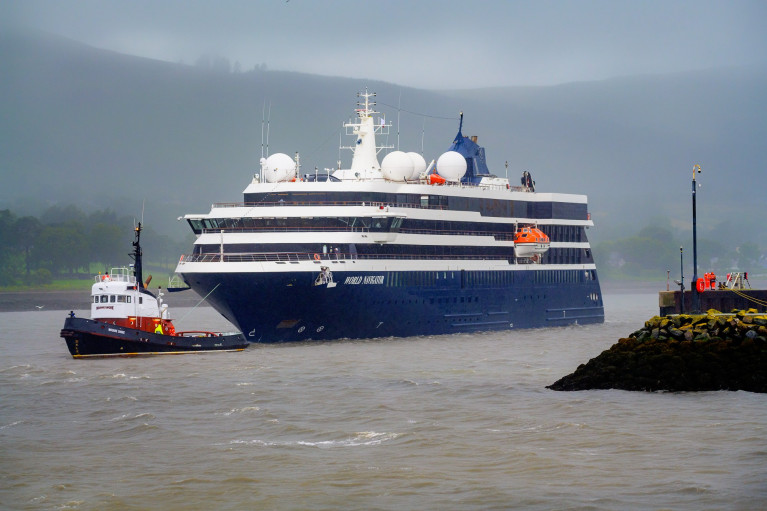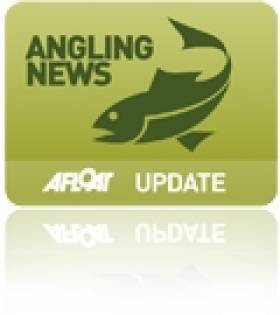Displaying items by tag: Mourne
The first cruiseship since 2017 to visit Warrenpoint Harbour on Carlingford Lough was welcomed to the port today with the arrival of the World Navigator, writes Jehan Ashmore.
The cruiseship's inaugural call to the Co. Down port formed part of the 9,993 gross tonnage ship's 13-night London to Dublin cruise as Afloat previously reported.
The last caller to Warrenpoint took place in 2017 when Saga Pearl II headed up the Lough and this followed the historic first ever cruise call three years beforehand.
Despite the poor weather, passengers and crew of World Navigator received a warm welcome to the region where the Mountains of Mourne 'sweep down to the sea'.
The World Navigator built in Portugal was launched in August 2021 and offers luxury small expedition ship cruising from Florida-based Atlas Ocean Voyages. They operate the polar class ship with a capacity of 196 passengers and 127 crew.
The call of the World Navigator represents the first of three cruise ships due to dock in Warrenpoint this summer.
Tonight at 8pm the cruiseship departs on an overnight leg to Dublin Port.
As for the next caller to Warrenpoint, this will be The Azamara Pursuit which is scheduled to arrive on 5th August, followed on 18th August by the World Voyager.
Azamara Pursuit will be of particular local interest, as back in 2018 it was the largest ship of its kind to have a refit in Belfast; carried out by local firm MJM Marine.
Atlantic Salmon Trust Launches 2012 Auction Online
#ANGLING - The Atlantic Salmon Trust's 2012 Fishing Country Sports Auction went live this week, with some 300 lots offered - including three prime Irish fishing spots on the Blackwater, Mourne and Drowes.
“The annual auction remains our single most significant fundraising event and its success is essential to helping us continue our work,” said AST chief executive Tony Andrews in The Irish Times.
Aside from top fishing opportunities in England, Scotland and Wales, spots in Russia are also featured, as well as deer stalking excursions and shooting days.
For art lovers, sporting prints and watercolours are included in the lots, as is a limited edition of the acclaimed Atlantic Salmon Magic, and Salmon Rivers, one of the best recent publications on the Atlantic salmon. They could be the perfect gift for someone's Valentine's Day.
Bids will close on 14 February for the online auction at www.atlanticsalmontrust.org/auction/.






























































